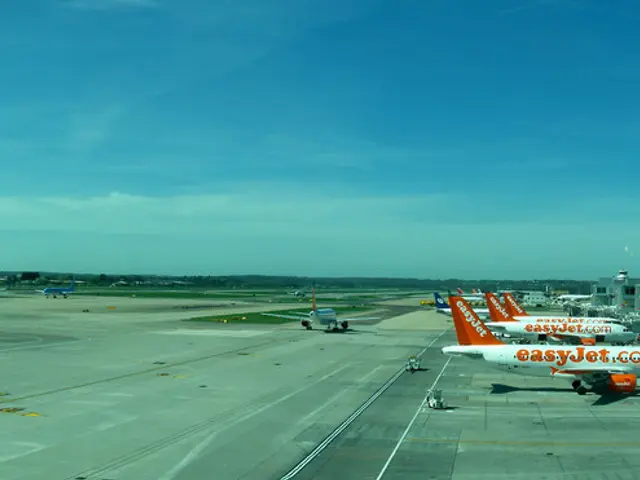A Potential Shift in EU Flight Delay Compensation Policies: A Warning for Passengers
Critics urge caution on EU plan for changing compensation for flight disruptions
In the ongoing negotiations, the European Union mulls over revamping its flight delay compensation regulations, first introduced in 2013. However, the proposed modifications have sparked debate among EU nations, leading to uncertainties for air travelers.
Proposed Revisions in Compensation Thresholds
The EU Commission has suggested several adjustments to the current compensation thresholds:
- Delay Threshold Hike: The existing threshold for compensation sits at three hours. The proposed changes could push this threshold to four hours for most flights and up to six hours for long-haul journeys [1][2].
- Compensation Amounts: For domestic and short-haul flights within the EU, compensation would start at €250 for delays of five hours or more [4][5]. For longer flights, passengers would have to endure nine hours of delay to qualify for compensation amounting to €400 [4][5]. Air travelers on long-haul flights might only become eligible for €600 compensation after experiencing delays of 12 hours or more [4][5].
- Lengthy Delay Periods without Compensation: The EU might accept extended delays of up to 12 hours, during which passengers could not seek alternative flights without relinquishing their rights [4].
Implications for Passenger Rights
Consumer advocacy groups anticipate that these changes could cause up to 85% of current delayed flight compensation recipients to miss out on these benefits, potentially undermining airlines' incentives to maintain punctuality [3][5].
Current Standoff amongst EU Countries
Although the negotiations are still ongoing, no agreement was reached at the recent EU council meeting. Poland, the current presidency of the Council of 27 states, is pushing for an accord at the meeting of EU transport ministers scheduled for Thursday in Luxembourg [6]. Germany has reportedly presented a counter-proposal keeping the three-hour threshold but reducing the compensation to an average €300 [6].
If a majority of EU countries reach an agreement on Thursday, they'll move on to negotiations with the European Parliament later in the fall [6].
- The ongoing debates about revamping the European Union's flight delay compensation regulations, particularly the proposed adjustments to employment policies within the aviation industry, finance, and transportation sectors, may significantly impact the employment policy of airlines, as they grapple with potential changes to compensation thresholds for delayed flights.
- As the European Union deliberates on adjusting the current flight delay compensation thresholds, the proposed modifications to employment policy within the aviation industry could have far-reaching implications, potentially affecting millions of air travelers and altering the landscape of compensation rights, financial eligibility, and industry standards for flight delays.








